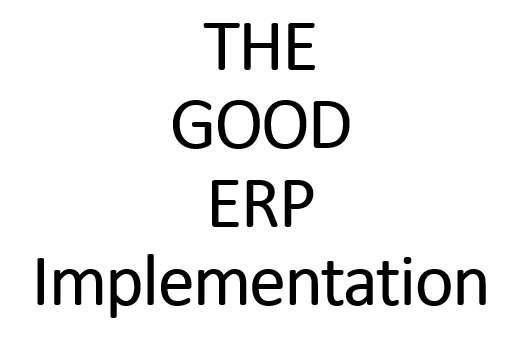1 min read
Why is a Post-ERP Implementation Strategy Just as Important
Why is a Post-ERP Implementation Strategy Important? At Mantralogix, our ERP consultants spend a lot of time discussing ERP implementation...
3 min read
Pam Washbon Thu, Nov 17, 2016

Part 1 of a 5 part blog series
If you are considering implementing a new Enterprise Resource Planning (ERP) system, then you are probably at the point where you are outgrowing your existing system. You probably heard that an ERP implementation is significant investment in both time and money. While the end result is well worth the effort, the risk of failure is high if certain steps are missed. The expectation is that your new ERP system will tie your organization together giving executives visibility to make critical decisions while giving the end-users a streamlined and efficient, easy to use interface to help save time and money. One critical step for the success of your project is finding an ERP implementation consultant that’s the best fit for your business. We hope this blog series helps ensure that switching your ERP system delivers the desired results and helps you with a successful implementation. Finding the right ERP consultant who understands your business requirements is essential to helping guide you through this process keeping your project on schedule and on budget.
In our experience, there are 6 qualities to look for in an ERP consultant to make sure they will be a good fit for your unique business requirements. They have the experience with your new ERP system and your business to provide your company with the appropriate tools to maximize your investment for years to come. The “right” ERP consultant will have a combination of the following qualities.
A successful ERP implementation includes bringing on the “right” ERP consultant that will be an essential part of your team. Your organization should be given careful consideration, in order to make your project successful and maximize your investment. For additional reading, download the white paper "Achieve Operational Excellence by Making Better Decisions." Contact Barry-Wehmiller International for a business process assessment or for additional information on how to start your Enterprise Resource Planning project.
B-WI provides enterprise, engineering, manufacturing automation and technology solutions enabling a connected enterprise by leveraging a global team to provide effective scalable solutions. We are dedicated to execution excellence through proven process methodologies and have assisted organizations of all sizes successfully transform their businesses. Our experience and expertise, crosses multiple disciplines and industries and we offer a wide-variety of solutions to fit your company’s specific needs.
Another version of this blog was previously published on May 20, 2016 B-WI’s Manufacturing Pulse Blog by Pam Washbon – Top 6 Things To Look For In An ERP Consultant
Image courtesy of "Right Sign" from FreeDigitalPhotos.net

1 min read
Why is a Post-ERP Implementation Strategy Important? At Mantralogix, our ERP consultants spend a lot of time discussing ERP implementation...

3 Tips for an Effective ERP Implementation Team Enterprise resource planning software is powerful and a great business tool, but it's also a complex...

1 min read
ERP Implementation Failure (cont.) - now let's review THE GOOD In part 1 of this ERP implementation failure blog on the subject, we looked into THE...